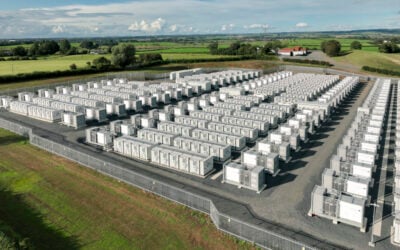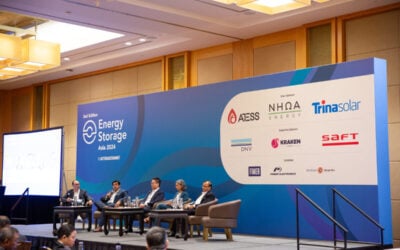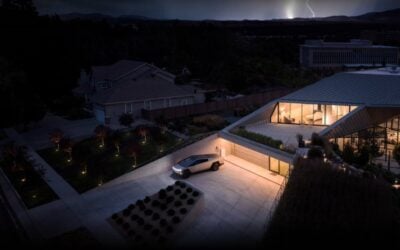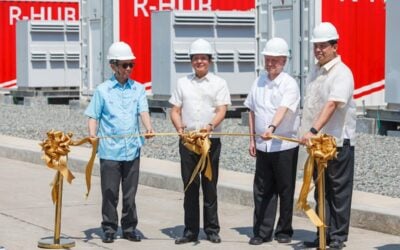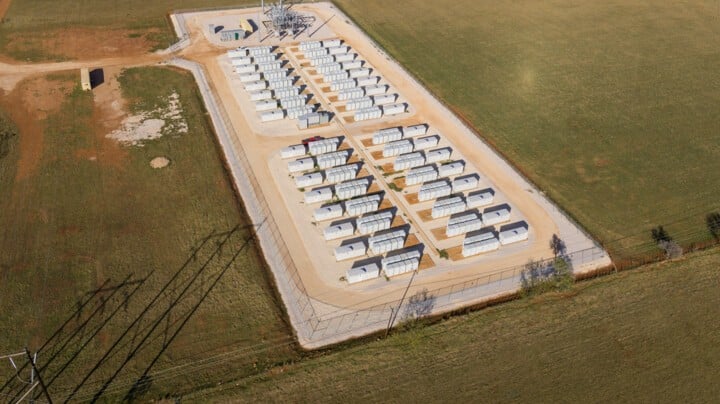
A highly contested 250MW/1GWh standalone BESS proposal from Engie in San Juan Capistrano, California, has reached a key permitting milestone in the California Energy Commission’s (CEC’s) Opt-In Certification Program.
After Engie submitted a first draft of its application last April, the CEC last week deemed the application complete, starting a 270-day countdown to approve or deny the project.
The project is only the second renewable energy development to reach this stage, after Intersect Power’s 4.6GWh Darden hybrid BESS proposal in Fresno County, California became the first to reach this pivotal stage during March this year, as reported in Energy-Storage.news.
Engie opts for state regulator
The Compass Energy Storage project first made the news during November 2022, when initial project developer, Broad Reach Power (BRP), was denied a rezoning request that would have paved the way for construction of the BESS.
Try Premium for just $1
- Full premium access for the first month at only $1
- Converts to an annual rate after 30 days unless cancelled
- Cancel anytime during the trial period
Premium Benefits
- Expert industry analysis and interviews
- Digital access to PV Tech Power journal
- Exclusive event discounts
Or get the full Premium subscription right away
Or continue reading this article for free
Following this denial, during the beginning of 2023, BRP informed the City of San Juan Capistrano of its intentions to withdraw its local rezoning request and pursue approval via the California Energy Commission CEC.
Later on that year in October, BRP and its entire development pipeline, including the Compass project, was acquired by Engie from funds owned by EnCap and Apollo, as reported in Energy-Storage.news.
Following the close of the acquisition, the City of San Juan Capistrano received a formal request from Engie in February 2024 to withdraw the rezoning application associated with the Compass project.
Two months later, Engie kicked off the CEC approvals process for the Compass project, much to the dismay of some local residents and authorities, who accused the developer of attempting to gain a more favourable outcome through an alternative permitting process.
Local towns oppose project
In response to the opt-in application, officials at San Juan Capistrano issued a blanket moratorium on the approval of any new BESS facilities within town limits. However, seeing as CEC certification supersedes local planning laws, this was likely enacted as a way of warding off future proposals.
Despite enacting the ordinance to assess how best to deal with BESS, town officials have extended the ban on several occasions and recently extended the moratorium by another year until March 2026.
Although the project site is located in San Juan Capistrano, it will also border the Eastern border of Laguna Niguel, where officials have also formally opposed the project.
The Town of Laguna Niguel has gone as far to draft a template letter listing concerns surrounding the project for members of the public to sign and publish to the CEC website.
“The proposed location of Compass Energy Storage’s project site poses significant and immediate wildfire risks … In the past ten years, there have been 23 wildfires within a five-mile radius of the proposed project site,” explains the template letter.
As reported by Energy-Storage.news at the start of the year, this is a similar concern echoed by officials at Orange County, that led to the introduction of a six-month moratorium on the approval of new BESS facilities within unincorporated areas of the county.
Individual comments submitted to the CEC’s docketing system for the Compass project have now grown to over a thousand, with the majority opposing the development and many choosing to use the town’s template letter.
As with other anti-BESS campaigns, proponents have also raised concerns on the proposed project’s proximity to residential buildings along with contamination to local water sources in the event of a fire.
As part of its initial application, Engie has said it plans to deploy 250MW/1,000MWh worth of Tesla’s 2XL Megapack BESS solution at its Compass site, which utilises lithium iron phosphate (LFP) technology.
“Extensive public outreach will be conducted in the months ahead”
With the CEC deeming Engie’s application complete, the regulator has 270 days, or until 25 January 2026, to issue its final decision on whether to approve the project or not.
Leading up to this date, the CEC will assess the potential environmental impacts of the project through the production of an environmental impact report (EIR), which must be published in draft form within 150 days of the regulator deeming the application complete.
In deciding what to investigate within the EIR, the CEC will hold a public scoping meeting at the end of this month. Based on the volume of responses already submitted with the CEC, the meeting is likely to be a well-attended one.
“Extensive public outreach will be conducted in the months ahead,” says Engie, on a website dedicated to the project. As a project has yet to be approved via this CEC-administered route, it’s unclear how the regulator will weigh up the overwhelmingly negative public response to the project.
A final decision from the CEC for the only other project to reach this stage, Intersect Power’s Darden project, is due by the middle of next month.
Although not necessarily representative of future decisions, especially considering the lesser negative public sentiment to Darden, it will be interesting to see how the CEC tackles this initial decision.
Assembly bill to remove authority over BESS
As part of the fallout from the fire at Vistra’s Moss Landing BESS facility in Monterey County, Assembly Member Dawn Addis has sought to remove the CEC’s authority over BESS projects through the introduction of an Assembly Bill (AB 303).
Addis’ “Battery Energy Safety & Accountability Act”, which would also introduce new regulations including minimum distances from BESS sites and residential dwellings, was due to be heard by the Utilities and Energy Committee last month, however, this was postponed.
Although the bill has garnered support from a handful of local town authorities, particularly ones nearby the Moss Landing site, county officials have been hesitant to back the bill.
During February 2025, San Diego County’s Board of Supervisors declined to support the bill, following a request from supervisor and BESS-skeptic Jim Desmond, who has spoken out against energy storage on numerous occasions.

